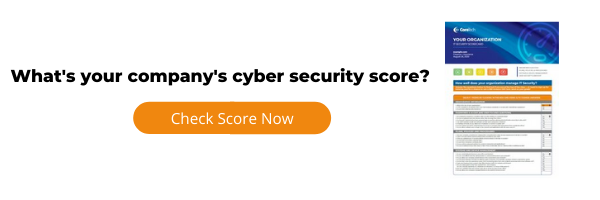 Cyber criminals attack, on average, every 39 seconds, and 43% of cyber security attacks target small and midsized businesses.
Cyber criminals attack, on average, every 39 seconds, and 43% of cyber security attacks target small and midsized businesses.
They snatch data or compromise records, hack into unsecured computer systems, pilfer money, and steal identities. They use phishing, malware, ransomware, social engineering, and numerous other tactics to obtain data and other resources.
But surely not all of these cyber criminals can get away with their crimes, right? Read on to find out how cyber criminals are caught - tracked down and put behind bars.
Where to start?
As you might imagine, catching a cyber criminal is not an easy task. The first step is to identify the criminal activities and the backbone of the issue.
The Internet Crime Complaint Center (IC3), which is a partnership between the Federal Bureau of Investigation (FBI) and the National White Collar Crime Center (NW3C), collects complaints of internet crime and forwards the data to the appropriate law enforcement agencies to investigate cyber crimes. The NW3C also trains thousands of law enforcement officers yearly in cyber crime, computer forensics, and intelligence analysis.
Digital Forensics - Evidence
So what happens after you share information and data of cyber crime activity with local law enforcement agencies?
Lots of research.
Law enforcement officials will use cyber forensic analysis tactics to find data and present it as evidence.
In order for this evidence to be used in court, the police have to get a warrant to obtain the machines used in the cyber crime. Once the machines are obtained, cyber crime units are assembled, which have special technical skills. The cyber crime unit decrypts files, reveals passwords, seizes information, and recovers missing files.
What happens to cyber criminals that are caught?
Now, what happens to the cyber criminal?
The punishment for cyber crime has increased over the years due to the increase in technology and cyber crime activity. The penalties vary depending on the type of cyber crime committed.
Hacking
Hacking is considered a federal offense, as it is deemed a form of fraud. The punishment for hacking ranges from a small fine to 20 years in prison, depending on the offense.
Identity Theft
Identity theft can earn a sentence up to five years, and that time will increase if the theft was related to terrorism.
Intercepting Communications
Intercepting communications carries possible jail sentences of one to five years.
Hacking Government Information
Hacking a secure government information system carries penalties of up to 10 years in prison, along with fines.
How do you stay safe from cyber criminals?
No target is too small, nor too big, so it is important you take the necessary precautions today to protect yourself.
First, be sure to always keep your firewall on and the software updated; this will help protect your computer from hackers. Check your antivirus software and be certain it is updated and installed correctly to protect yourself from malware attacks, which includes any type of malicious software intended to cause harm or damage to a server or computer network.
Last but not least, pay attention to what you are downloading and to the websites you are on. Carelessly downloading email attachments can almost instantly allow a cyber criminal to hack or gain access to your computer.
Finally, when you are not using your computer, be sure to log off. If it is left on, the attacker could have a connection to hack into your information.
Do you need assistance protecting your business network systems? Please contact us today.
Blog post has been updated to reflect updated statistics, Jan. 13, 2021.


